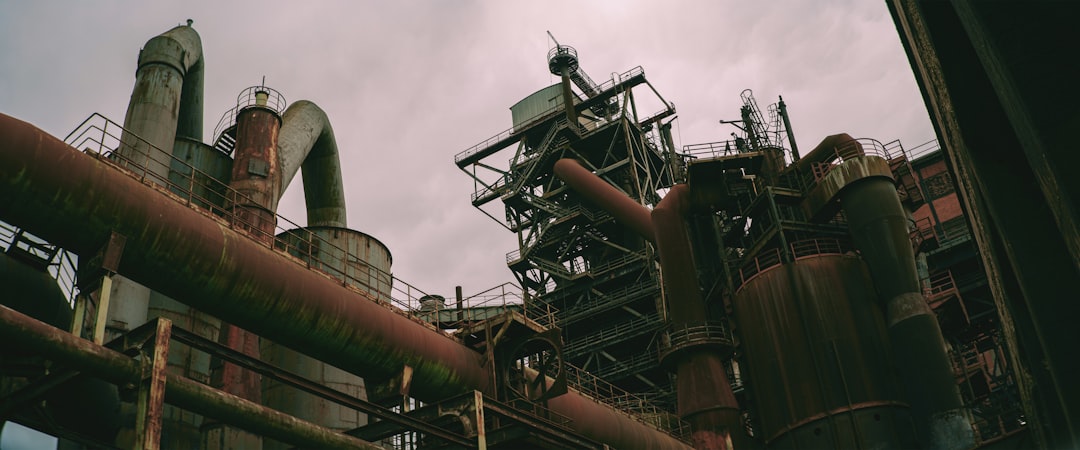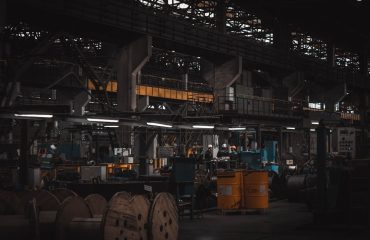Oil refineries are complex and demanding environments, operating under extreme conditions of high pressure, temperature, and exposure to corrosive chemicals. At the heart of this intricate network lies a crucial component: steel pipes. These seemingly simple structures are the arteries of the refinery, transporting vital fluids and gases throughout the processing stages. Understanding the critical role of steel pipes in oil refineries is key to appreciating the safety, efficiency, and overall functionality of these industrial giants.
Diverse Applications of Steel Pipes in Refineries
Steel pipes are used extensively throughout the refinery process, each application demanding specific properties and materials. They are crucial for transporting crude oil from storage tanks to processing units, carrying intermediate products between different stages of refining, and delivering finished products such as gasoline, diesel, and jet fuel to storage and distribution points. Specific applications include:
- Crude Oil Transfer Lines: These large-diameter pipes handle the initial influx of crude oil, often at high temperatures and pressures. They require robust construction and excellent resistance to corrosion.
- Process Piping: Smaller diameter pipes are used in the intricate network of processing units, carrying various hydrocarbons, catalysts, and other chemicals under diverse conditions. The choice of steel grade depends heavily on the specific fluid and process parameters.
- Steam and Water Lines: High-pressure steam and water are essential for heating and cooling processes within the refinery. Pipes used for these applications must withstand high temperatures and pressures, and be resistant to scaling and corrosion.
- Fuel Gas Distribution: Fuel gas, a byproduct of the refining process, is used to power various refinery operations. The pipes transporting this fuel must be leak-proof and designed to handle potentially explosive mixtures.
- Instrument Air Lines: Compressed air is used for instrumentation and control systems. These lines require high-quality pipes to ensure reliable operation and prevent contamination.
Stringent Material Requirements and Specifications
The demanding conditions within oil refineries necessitate the use of high-quality steel pipes that meet stringent specifications. The choice of steel grade depends on several factors, including pressure, temperature, fluid compatibility, and the presence of corrosive agents. Commonly used steel grades include:
- Carbon Steel: A cost-effective option for many applications, carbon steel pipes offer good strength and weldability. However, their corrosion resistance might be limited, requiring additional protective coatings in certain environments.
- Alloy Steel: Alloy steels, containing elements like chromium, molybdenum, and nickel, provide enhanced strength, corrosion resistance, and high-temperature capabilities. They are often preferred for high-pressure and high-temperature applications.
- Stainless Steel: Stainless steel pipes offer exceptional corrosion resistance, making them ideal for handling corrosive fluids and operating in harsh environments. They are often used in applications involving sour gas (gas containing hydrogen sulfide).
These pipes must also adhere to stringent industry standards, such as ASME (American Society of Mechanical Engineers) and API (American Petroleum Institute) specifications, ensuring consistent quality and performance.
Ensuring Safety and Preventing Catastrophic Failures
Safety is paramount in oil refineries. Pipe failures can lead to catastrophic consequences, including fires, explosions, and environmental damage. Therefore, regular inspection, maintenance, and rigorous quality control are essential. This includes:
- Non-Destructive Testing (NDT): Techniques like radiography, ultrasonic testing, and magnetic particle inspection are used to detect flaws in the pipes before they become critical.
- Regular Inspections: Visual inspections, pressure testing, and leak detection are performed routinely to identify potential problems early on.
- Corrosion Prevention: Protective coatings, such as painting, lining, and cathodic protection, are applied to extend the lifespan of the pipes and prevent corrosion.
- Emergency Shutdown Systems: Sophisticated systems are in place to automatically shut down processes in case of leaks or other emergencies.
The implementation of strict safety protocols and diligent maintenance practices are crucial for minimizing risks and preventing accidents.
Advanced Materials and Technologies in Refinery Piping
The oil and gas industry is constantly evolving, and so is the technology used in refinery piping. Recent advancements include:
- High-Strength Steels: New alloys are being developed to offer even greater strength and resistance to corrosion, allowing for the use of smaller diameter pipes and reducing material costs.
- Advanced Coatings: Innovative coatings provide superior corrosion protection and extend the lifespan of the pipes, reducing maintenance needs and downtime.
- Smart Pipes: Sensors and data analytics are being integrated into pipe systems to monitor pressure, temperature, and other parameters in real-time, enabling predictive maintenance and early detection of potential problems.
- Composite Pipes: In specific applications, composite materials are being explored as an alternative to steel, offering lightweight and corrosion-resistant solutions.
These technological advancements contribute to improved safety, efficiency, and environmental sustainability within oil refineries.
The Future of Steel Pipes in Oil Refineries
Steel pipes will continue to play a vital role in oil refineries for the foreseeable future, albeit with continuous advancements in materials and technologies. The focus will remain on enhancing safety, increasing efficiency, and minimizing environmental impact. The adoption of smart technologies, advanced materials, and improved maintenance practices will ensure the continued reliability and longevity of these crucial components in the complex world of oil refining.
Tags: steel pipes, oil refinery, refinery pipes, pipeline, oil and gas




